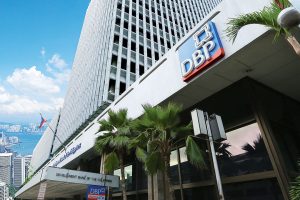THE SENATE on Monday approved on third and final reading a measure that provides for a new charter for the Development Bank of the Philippines (DBP), which will raise its authorized capital stock and allow it to conduct an initial public offering.
Twenty-one senators voted in favor of Senate Bill No. 2804, which will repeal the DBP’s current charter. The bill increases the state-run bank’s authorized capital stock to P300 billion from P35 billion to allow it to finance its priority sectors.
“The approval on third reading of this bill takes us one step closer in providing greater accessibility of financial resources to our fellow Filipinos,” Senator Mark A. Villar, who sponsored the measure, told the plenary after the bill’s approval.
The capital hike will allow DBP to increase its assistance to its priority sectors, including social infrastructure and micro, small, and medium enterprises, among others, he said.
Under the new charter, the National Government must own 70% of the bank’s capital stock at all times, with P32 billion or 10.67% of it being fully subscribed to and paid for by the state.
The President is authorized to further increase the capitalization of the bank upon the recommendation of the Finance secretary, and to use the DBP’s unrestricted retained earnings to fund the hike.
Senate Minority Leader Aquilino “Koko” D. Pimentel abstained from voting on the measure and opposed the provision on using the unrestricted earnings to hike its capital stock, saying shareholders must have a say in how the earnings are used.
“It is my opinion that all shareholders have a stake in the unrestricted retained earnings,” he told the Senate floor. “The law must recognize the distinct juridical personality of the bank from the juridical personality of the national government as a shareholder of the bank.”
DBP will also be authorized to engage in financial leasing related to government projects.
“Since its establishment, the DBP has served the medium- and long-term financial needs of various sectors, particularly agricultural and industrial enterprises in the countryside,” Senator Emmanuel Joel J. Villanueva told the floor after the measure’s approval.
“This bill is a response to the changing times that require us to provide our people with more resources to fund developmental projects and ventures and promote financial inclusion,” he said. — John Victor D. Ordoñez

